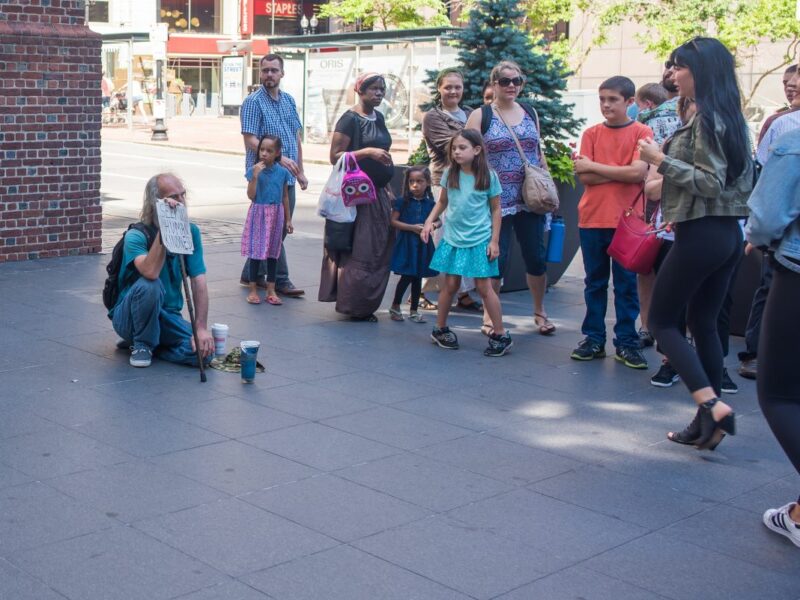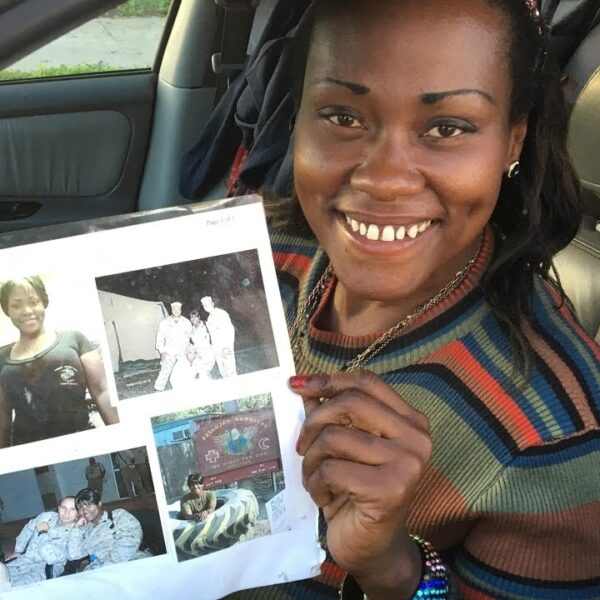In 2020, I was invited to participate in a student task force, where we were asked to create a solution to homelessness. But how could eight high school students find a solution to homelessness? Could we, as students, really do anything to end the housing crisis in America?
Despite my doubts, as we brainstormed to create a solution, we realized that at the heart of this issue was a misconception about what it meant to be homeless. We set out to create an organization that targeted educating our peers and other teens to ensure that homeless voices so frequently ignored would be heard.
Our organization is called Youth Fighting Homelessness. It exists as a broader organization of students from across the country while also holding two chapter organizations in New York and Los Angeles.
I hope that as a country, we can redefine the way we think about solving homelessness, from helplessly passing people experiencing homelessness in our streets to joining a collective fight in supporting our homeless neighbors.
But how do we get there? What are some of the steps we must take as individuals to create this change?
Educate Yourself
“Nothing in the world is more dangerous than sincere ignorance.” – Martin Luther King, Jr.
Action starts with knowledge. There is no solution to homelessness if we as individuals aren’t informed on how homelessness affects those experiencing it. We must be willing to remain engaged with our local news sources, especially news about housing in America. Stay up to date on housing policy and what your local, state, and federal lawmakers are doing or not doing to end homelessness.
Some credible sources which provide information on homelessness today include:
- US News: Homelessness
- The New York Times: Homelessness
- AP News: Homelessness
- The Bipartisan Policy Center: Housing
- Invisible People
Create a Club
Clubs are not only an important way to encourage members of one’s student body to get involved in ending homelessness, but they also facilitate greater communication which is essential in any attempt to create change. But if there’s already one existing at your school or in your community targeting similar goals, it’s often more important to be a member rather than make a new one.
Leading a club with eight other students was tricky in my own life. We navigated respecting each opinion while seeking efficiency. Often, it took someone to step down and allow another person’s vision to take the spotlight to ensure that our ideas continued to transform into action.
Don’t be afraid to be a follower to support the opinions and leadership of your peers.
If you do choose to lead a homelessness club, it is critical to establish a core group of members within your organization. Two to three students are often not enough to ensure that your club runs with efficiency and productivity.
Before starting, check in with your friends and peers to see if they’d be interested in joining. Spend time developing your organization.
Faculty advisors are also critical in moving forward with larger initiatives at your school and amongst your student body. Find a faculty member willing to help you with your initiative and who is similarly passionate about fighting homelessness.
Secondly, create a plan to keep yourself on track. It’s easy to finish a project and then not know where to go in your organization’s next steps. But this downtime can be detrimental.
In my club, months have gone by with little to no work done because sparse meetings are spent brainstorming without any direction. These periods decrease motivation and efficiency, ultimately drawing one away from what is really at stake: changing the lives of those living on the streets. So before starting a new year, plan out what will come next throughout the year.
Thirdly and most importantly, communicate with your members. If there are periods where you don’t have a plan and find your club losing activity or motivation, check in with your peers. Brainstorm new ways to advance your mission. Be willing to share the workload so that it becomes a collective effort.
Make sure that you’re also checking your contributions to your club, too– if they are becoming the only contributions, don’t be afraid to ask others to share the load.
This past spring especially, I found myself and my co-leader doing everything to plan and schedule a recent drive for our school. Rather than asking our members to contribute, I figured it would be faster to get it done myself. But this can be detrimental, isolating yourself from your peers and taking away motivation to contribute. Call each other in, and remember clubs don’t work unless they are collective efforts.
Reach Out to Experts, Engage your Student Body
The most effective way to educate the rest of your student body on homelessness is to bring in speakers who can share their personal experiences.
Experts want to support students’ desire to make a positive difference in their community because they’re passionate about their fields. Giving your student body a chance to hear from speakers is an effective way to recruit new members. Your peers don’t have to do anything but listen. By attending a session, they are taking a step toward committing themselves to this issue.
The key is to create ripples of change, engaging your peers to get involved as well, thereby extending impact.
But how do you reach out to speakers, and what do you say to them?
I’ve gotten the chance to speak over many meetings with Joe Weinstein, a senior partner at Georgetown University’s Business for Impact Program. Weinstein works professionally to network with other students and businesses. He’s spoken to me about how best to reach out to speakers and experts.
I’ve narrowed much of what he’s said into three central tips on writing emails. Don’t be afraid of them. They’re an effective and easy way to reach out to someone. People are more than happy to support a student’s desire to make a positive difference in their community.
Subject line
The subject line is key to getting speakers to open the email. Be direct and to the point. Mention who you’ve been referred by, if applicable. If not, emphasize that you are a student passionate about ending homelessness.
Brevity
If emails are too long, people often won’t read them. Don’t tell your life story. Be short and sweet while remaining clear about your needs and why you are writing. Two short paragraphs (2-3 sentences each) usually work best. The first outlines what you want, and the second provides a little background on who you are and how you know this speaker.
Follow Up
If you’ve been corresponding via email and they’ve responded to you but later don’t respond, don’t be afraid to send another email. Persistence, within reason, is key in showing that you are committed to having them speak at your school. Make sure to respond to them promptly. Never leave them waiting on you. If they find that you are not responsive, speakers will often lose interest. On the other hand, if they can’t meet, ask them to refer someone else. In most cases, they will be happy to refer you to someone else.
Persistence Prevails
As young students, one can ultimately feel powerless to make a difference. I certainly did when I started organizing and educating other students on homelessness. But it’s important to remember that even the smallest steps have an impact.
Whatever I do in my life may just be grains of sand on a shore– but that is precisely the point. By starting small, we have the potential to encourage more and more people to do the same.
We can’t step down by thinking that someone else will work toward ending the housing crisis in America. It starts with how we treat our homeless neighbors and how we go about reshaping the failures of housing in our country.
If we can start by being an example to our peers today, who knows what kind of an impact we may have on those suffering from homelessness tomorrow?













